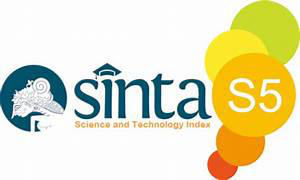DISEQLUIBRIUM PENGGUNAAN MEDIA PADA KONTEKS PENCARIAN INFORMASI ANTARA GENERASI X DAN Z
Abstract
Digitalisasi mampu mengantarkan masyarakat pada beragam peningkatan efisiensi dankenyaman, mampu merubah gaya hidup masyarakat di keseharian, baik dalam konteks pekerjaan, sosialisasi ataupun komunikasi. Kemewahan yang disuguhkan oleh perkembangan teknologi juga mengantarkan masyarakat pada ruang kesenjangan digital. Salah satu kesenjangan digital yang menjadi perhatian serius saat ini adalah kesenjangan antara generasi x dan z dalam pencarian informasi gaya hidup generasi X dan Z yang ada di Jabodetabek. Artikel ini bertujuan untuk mengejawantahkan tingkat kesenjangan dari pencarian akses informasi pada generasi x dan generasi z terkait gaya hidup di wilayah jabodetabek. Metode yang digunakan melalui tradisi kuantitatif dengan analisis deskriptif yang akan menghasilkan luaran yang memuat tingkat pencarian dan kebutuhan informasi gaya hidup pada generasi x dan z. Penggunaan media pada generasi X dan generasi Y memiliki gap atau ketimpangan yang minim dalam konteks pencarian informasi. Perbedaan antara keduanya ada pada hal-hal yang lebih substantif, generasi X cenderung lebih hati-hati dalam memercayai sumber informasi, khususnya dalam memilih media informasi, memastikan kebenaran informasi, memastikan tingkat kredibilitas media informasi.
Keywords
References
Alamsyah, F. F., Karlinah, S., Sjuchro, D. W., & Agustin, H. (2021). Exploring the Different Opportunities For Information Diversity in the Digital Disruption Era. 11, 191–198. https://doi.org/10.48047/rigeo.11/5/19
Anderson, M., & Jiang, J. (2018). Teens, social media & technology 2018. Pew research center, 31(2018), 1673-1689.
Anshari, A. (2022). Studi Kasus Adaptasi Generasi X dan Generasi Z terhadap Penggunaan Aplikasi Grab dan Gojek di Kota Malang. Media Pengkajian Sosial Budaya, 11, 44–57.
Bestari, N. P. (2023, March 1). Google Ditinggal, Gen Z Pakai Ini Buat Cari Informasi. CNBC Indonesia.
Chen, J., Liu, T., & Shen, S. (2016, May). Online generation of collision-free trajectories for quadrotor flight in unknown cluttered environments. In 2016 IEEE international conference on robotics and automation (ICRA) (pp. 1476-1483). IEEE.
Eshet, Y., 2004. Digital literacy: A conceptual framework for survival skills in the digital era. Journal of educational multimedia and hypermedia, 13(1), pp.93-106.
Flanagin, A.J. and Metzger, M.J., 2000. Perceptions of Internet information credibility. Journalism & mass communication quarterly, 77(3), pp.515-540.
Fromm, J., & Read, A. (2018). Marketing to Gen Z: The rules for reaching this vast--and very different--generation of influencers. Amacom.
Gilboa, S., Vilnai-Yavetz, I., Mitchell, V., Borges, A., Frimpong, K., & Belhsen, N. (2020). Mall experiences are not universal: the moderating roles of national culture and mall industry age. Journal of Retailing and Consumer services, 57, 102210.
Gurău, C. (2012). A life‐stage analysis of consumer loyalty profile: comparing Generation X and Millennial consumers. Journal of consumer Marketing, 29(2), 103-113.
Janssen, L., Schouten, A. P., & Croes, E. A. (2022). Influencer advertising on Instagram: product-influencer fit and number of followers affect advertising outcomes and influencer evaluations via credibility and identification. International journal of advertising, 41(1), 101-127.
Juni, I. A. W. (2017). Pengaruh Sistem Digital Dan Keamanan Arsip Terhadap Efisiensi Waktu Kerja Pada Dinas Penanaman Modal Dan Pelayanan Terpadu Satu Pintu Kota Denpasar. Public Inspiration, 81–90. https://www.ejournal.warmadewa.ac.id/index.php/public-inspiration/article/view/798/603
Kartajaya, H., & Setiawan, I. (2021). Marketing 5.0 Teknologi untuk Kemanusiaan (1st ed.). Gramedia Pustaka.
Lissitsa, S., & Laor, T. (2021). Baby Boomers, Generation X and Generation Y: Identifying generational differences in effects of personality traits in on-demand radio use. Technology in society, 64, 101526.
Marsudi, A. S., & Widjaja, Y. (2019). Industri 4.0 Dan Dampaknya Terhadap Financial Technology Serta Kesiapan Tenaga Kerja Di Indonesia. IKRAITH EKONOMIKA, 2. https://journals.upi-yai.ac.id/index.php/IKRAITH-EKONOMIKA/article/view/398/280
Organisation For Economic Co-Operation And Development. (2016). Uderstanding The Digital Divide. https://www.oecd.org/sti/1888451.pdf
Pramitra Sukarjo1, S., & Nasionalita2, K. (2022). Kesenjangan Digital Antara Generasi Y Dan Z Pada Guru Sekolah Menengah Atas Kota Bandung Dalam Pembalajaran Daring Selama Pandemi Covid-19. E-Proceeding of Management, 9, 992–1007. https://openlibrarypublications.telkomuniversity.ac.id/index.php/management/article/view/17747
Răduț, F. (2021). Generation" Z" and Social Networks. Journal of Educational Studies, 3(1), 88-126.
Satriania, I., & Alamsyah, F. F. (2020). Motives And Gratifications Of Bogor Students In Using The Internet. JHSS (Journal Of Humanities And Social Studies). https://doi.org/10.33751/jhss.v4i1.2043
Smith, A., & Anderson, M. (2018). Social media use in 2018.https://policycommons.net/artifacts/617452/social-media-use-in-2018/1598263/
Southgate, D., 2017. The emergence of Generation Z and its impact in advertising: Long-term implications for media planning and creative development. Journal of Advertising Research, 57(2), pp.227-235.
Sugiyono, Prof. Dr. (2016). Metode Penelitian Kuantitatif, Kualitatif, dan R&D. In Alfabeta, cv.
Wartella, E., Rideout, V., Montague, H., Beaudoin-Ryan, L., & Lauricella, A. (2016). Teens, health and technology: A national survey. Media and communication, 4(3), 13-23.
Williams, A. (2015). Move over, millennials, here comes Generation Z. The New York Times, 18, 1-7.
DOI: 10.33751/jpsik.v7i2.9355
Refbacks
- There are currently no refbacks.

This work is licensed under a Creative Commons Attribution-ShareAlike 4.0 International License.












